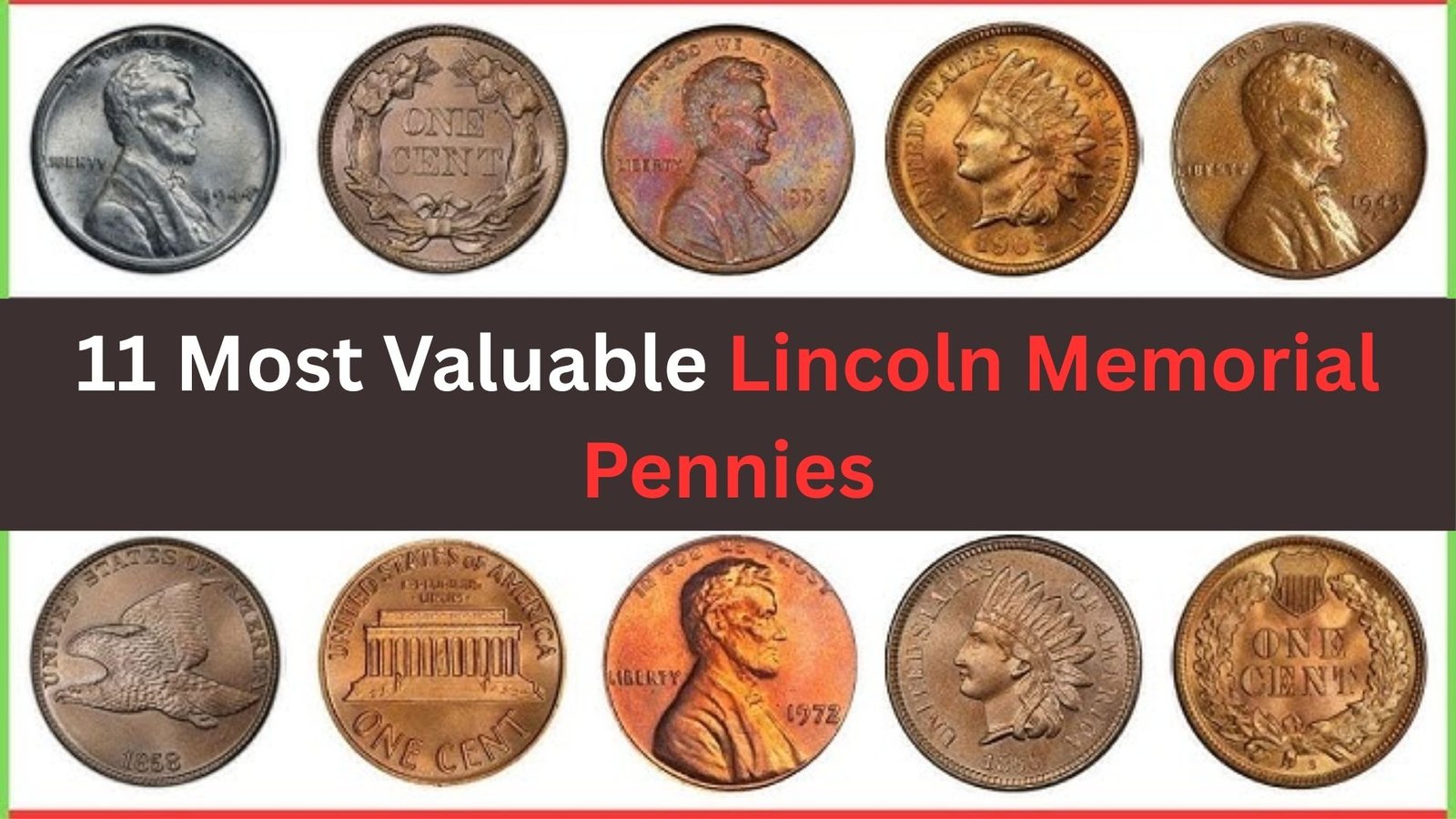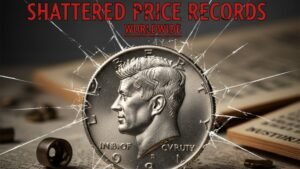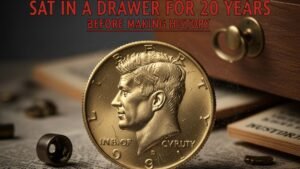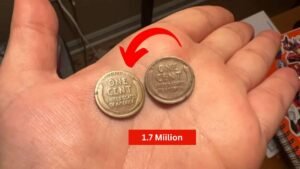Ever picked up a penny from the sidewalk and wondered if it’s worth more than one cent? Those humble Lincoln Memorial pennies, minted between 1959 and 2008, might just be rare coins hiding in plain sight. With minting errors and pristine conditions driving up values, some fetch thousands at auction. In this guide, we’ll dive into 11 valuable examples, their fascinating history, and tips to kickstart your numismatic journey. Stick around—you might spot a treasure in your jar!
What is a Lincoln Memorial Penny?
A Lincoln Memorial penny is a one-cent coin featuring Abraham Lincoln on the front and the Lincoln Memorial on the back. It’s part of the long-running Lincoln cent series, but this version stands out for its reverse design honoring the famous monument.
These rare coins appeal to hobbyists because they’re easy to find yet can hold surprising numismatic value.
The History Behind These Iconic Coins
The Lincoln Memorial penny debuted in 1959 to mark Lincoln’s 150th birthday. Designed by Frank Gasparro, the reverse shows the Memorial building, while Victor Brenner’s obverse portrait stayed the same.
Minted until 2008, it saw changes like switching from mostly copper to zinc in 1982 due to rising metal costs. Over 49 years, billions were produced, making them common—but errors turned some into numismatic gems.
| Year Range | Composition | Key Change Reason |
|---|---|---|
| 1959-1981 | 95% Copper, 5% Zinc | Post-WWII standard |
| 1982-2008 | 97.5% Zinc, 2.5% Copper Plating | Cost savings from copper prices |
Why Lincoln Memorial Pennies Are Valuable Today
In today’s market, these pennies shine due to rarity from mint errors, low mintage, or top-grade condition. A simple doubled die or wrong metal can skyrocket worth.
Collectors prize them as accessible entry points into numismatics, with some selling for over $100,000. They’re relevant for hobbyists building sets or flipping rare coins.
How to Start Collecting Lincoln Memorial Pennies
Dive in by checking pocket change for key dates. Join numismatic clubs or use apps to identify varieties.
Benefit by turning a fun hobby into potential profit—sell graded coins online or at shows.
Notable Facts and Records
Did you know a 1999 mule error penny sold for $138,000? Or that 1969-S doubled dies are ultra-rare, with only dozens known?
Mintage peaked at over 7 billion in 1982, but errors like the 1983 bronze cent are mythical.
Here’s a table of 11 valuable examples:
| Year | Variety | Mint | Top Value |
|---|---|---|---|
| 1999 | Mule (Cent/Dime) | P | $138,000 |
| 1969 | Doubled Die Obverse | S | $126,500 |
| 1963 | Proof Deep Cameo | P | $40,250 |
| 1970 | Doubled Die Obverse Large Date | S | $38,400 |
| 1992 | Close AM | P | $25,850 |
| 1959 | Proof Deep Cameo | P | $20,700 |
| 1960 | Large Date | D | $20,000 |
| 1964 | Special Mint Set | P | $19,200 |
| 1990 | No S Proof | P | $9,988 |
| 1971 | Proof Deep Cameo | S | $15,000+ (est.) |
| 1982 | Zinc Small Date | P | $15,600 |
Values from auctions.
Expert Tips for Numismatists
Look for doubling under a loupe—it’s a sign of valuable errors. Store coins in holders to preserve condition.
Get them graded by PCGS or NGC for max value. Start with affordable sets to build knowledge.
Frequently Asked Questions
What makes a Lincoln Memorial penny rare?
Errors like doubled dies or off-metal strikes.
How do I check if my penny is valuable?
Compare to guides; appraise if suspicious.
Are all old pennies worth money?
No, but condition matters—MS-65+ grades boost value.
Where can I sell rare coins?
Auctions, dealers, or online platforms like eBay.
Is collecting numismatic coins a good investment?
It can be, but enjoy the hobby first.
Conclusion
Lincoln Memorial pennies prove everyday items can hold hidden wealth. From their historic design to record-breaking sales, they’re perfect for budding collectors. Grab your change jar, hunt for these rare coins, and share your finds— who knows what numismatic treasure awaits? For more, explore Wheat pennies next!




